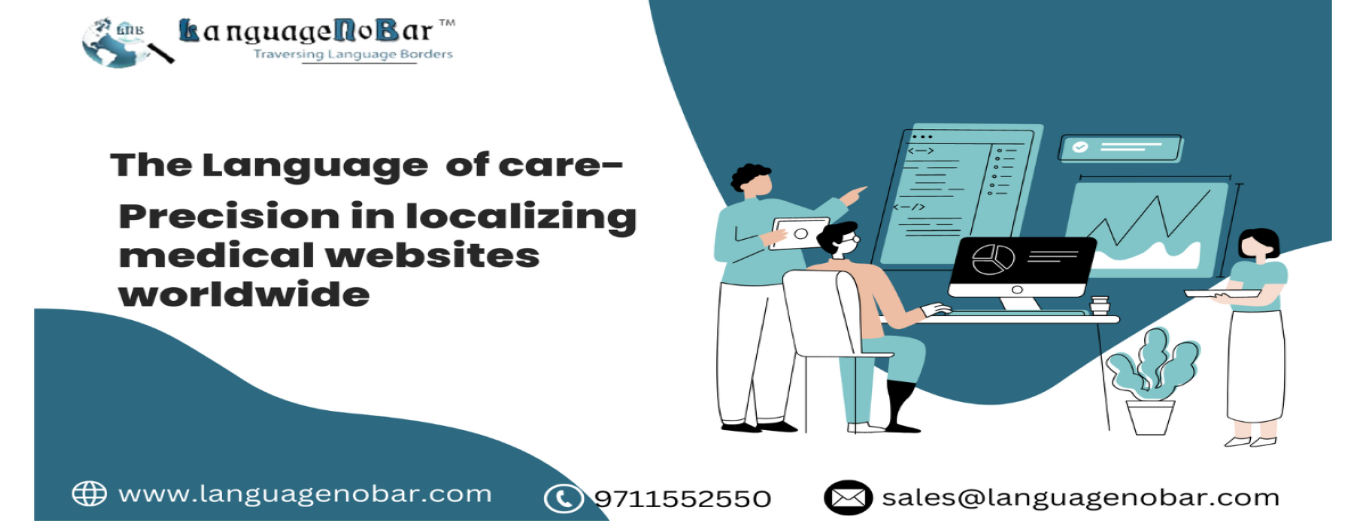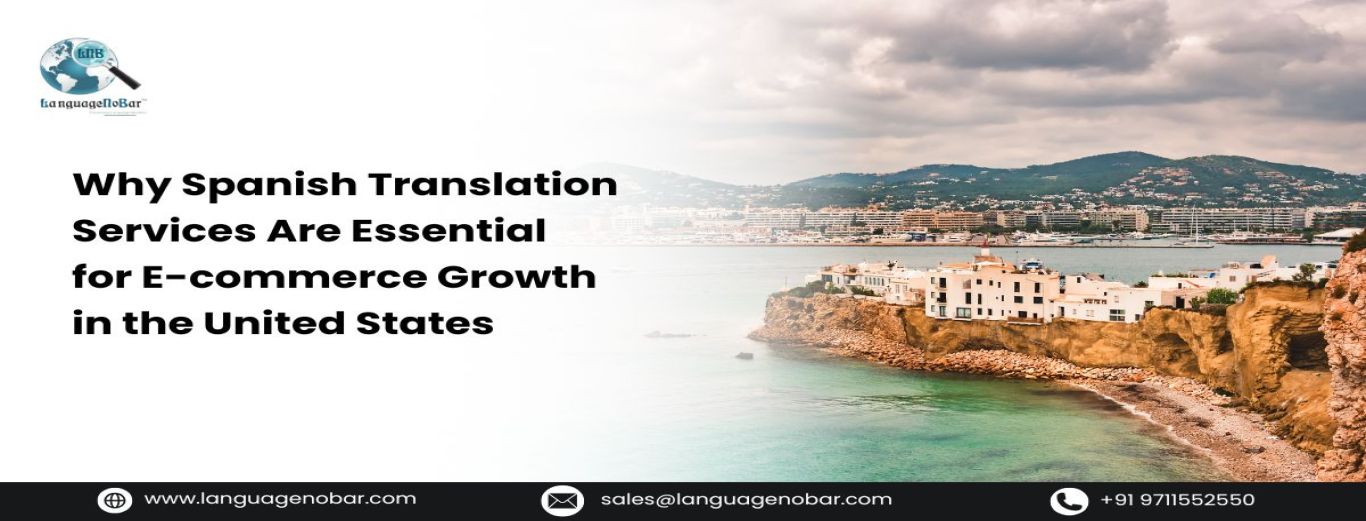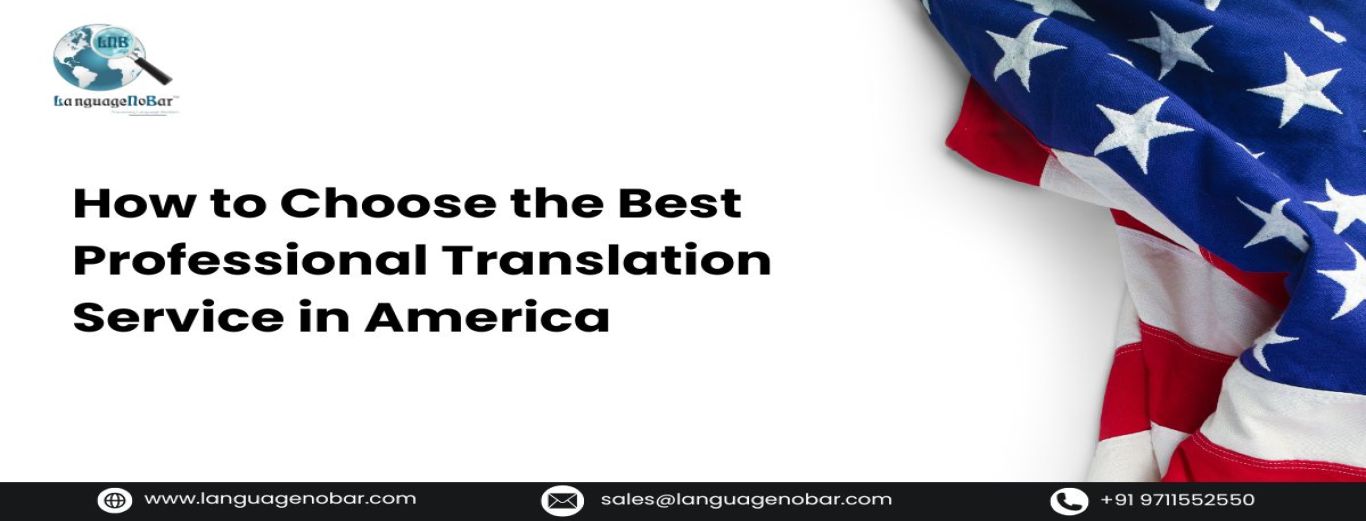Precision in Healthcare: Localizing Medical Websites for International Markets
- Website Translation Services
- Comments (0)
In a rapidly interconnected world, access to healthcare information is going beyond geographical boundaries; however, maintaining the consistency and accuracy of the information across the globe seems like a significant challenge for pharmaceutical companies. Healthcare organisations are scaling across borders; thus, the demand and necessity to localize their websites, adapt cultural aspects and medical terminologies, and ensure mandatory regulatory requirements have become imperative to maintain effective communication and engagement with the audience. This article will delve into the globalization of the healthcare sector, the significance of localising medical websites, and how localization services can impact the success of an organisation in international markets.
The Role of Globalization in the Healthcare Sector
According to recent studies, 30% of the total world’s data volume is being generated by the healthcare industry. The growth is fueled by various factors, like the advancement of new technologies, the evolution of drug discovery, and the growing demand for better healthcare services. The expansion of companies globally resulted in increased revenue and brand recognition, as well as serving as an opportunity to impact global health. However, with the pros come the cons. The pharmaceutical companies do face some hurdles while moving into international markets, such as language barriers, understanding cultural differences, and navigating regulatory requirements. These factors can adversely impact the success of an organisation. Yet these issues can be resolved with a deep understanding of each market’s nuances, and this process could be made easier with the strategy of website localization.
Localization of Websites for Pharmaceutical Companies
Localization of a website is not just a simple translation, but an interaction with your audience to resonate with them. Moreover, where the whole world is connected through digital means, the significance of well-modified, localised content cannot be underestimated.
Imagine going through a medical website in a language foreign to you, which is similar to driving without a proper road map or achieving a goal without a proper action. This would definitely create a dilemma in your mind. Do we have any possible solutions for that? Yes, localization of a website. Having a grasp of cultural nuances, regulatory compliances, and societal norms would help the audience perceive the message being delivered. Thus, for pharmaceutical companies, website translation services have become a necessity to capture markets worldwide. Website localization involves the modification of website elements, including visuals to connect with the locals and a user-friendly interface. It allows companies to interact with international clients like patients, healthcare specialists, dieticians, and so on.
Thus, the localization of a website has deeply influenced the growth and development of pharmaceutical companies. Where can we get our website localised? This is a frequently asked question because, apart from a mere language translation, there are various key components such as linguistic accuracy, transparency in the content, cultural nuances, regulatory specifications, and vast knowledge about the local healthcare landscape that need to be focused on. For that reason, you can approach certified translation service providers that deliver excellence in website localization as well as language translation.
Localization Services: Driving the Growth of the Healthcare Industry
The minute details are really crucial while delivering information in different languages. A minor mistranslation could result in misunderstandings, jeopardising patients’s trusts, and the website might get banned. That’s where the role of translation services kicks in, which provide excellence in website localization and translation. According to the research, if an app fails to localize for its audience, they might end up losing 13% of the users. Moreover, almost 41% of the prominent brands have at least one local country page that has proven beneficial in boosting their sales.
Precisely tailoring the content of product information is quite essential to ensuring customer safety and their informed decision-making. This ensures effective communication of product features, their usage, and any side effects if present. Translation companies, for instance, LanguageNoBar, have a team of professionals that not only provide accuracy in localization but also ensure precise and contextual-based translation. One must make sure that they approach professional translation services with concise knowledge of medical concepts and regulatory requirements.
Customers are more likely to buy your products and services when they use the app in their native language. Thus, altering websites to different languages can help companies reach their global audience. Localization of frequently asked questions enhances the engagement of the audience, as adaptation of language and tone and meeting the expectations of clients can benefit building brand value and trust.
In order to expand globally, healthcare companies must understand the need for and significance of website localization, considering different languages, cultural nuances, and regulatory compliances. By embracing website localization services, any company can build trust and rapport among their clients.
Are you feeling confused while choosing a top-notch website localization provider? Don’t worry, we have got your back. Check out our website, www.languagenobar.com, an ISO-certified, trusted localization provider, and unlock your potential to scale the global market.
Related Blogs
Take your mobile app global with Quality Localization Services
Reach your Customers Globally through Professional Website Translation Services
Diving Deep into Translation: Unraveling the Significance of Cultural Nuances and Context in Language Services







